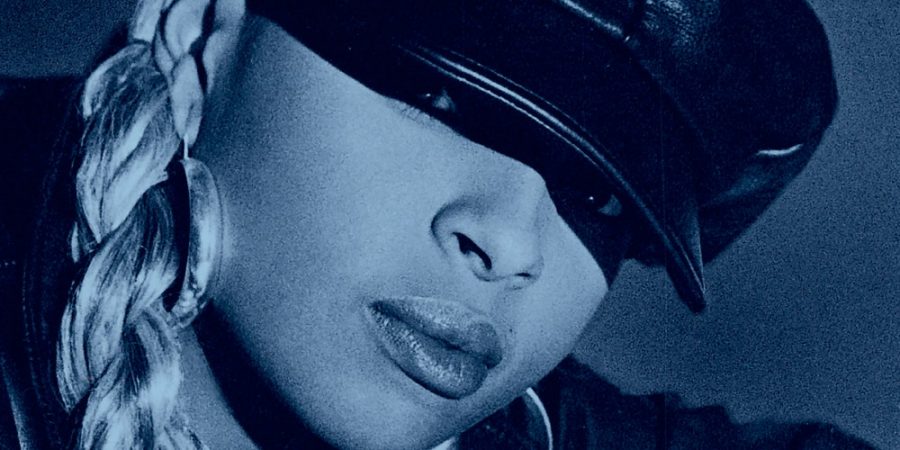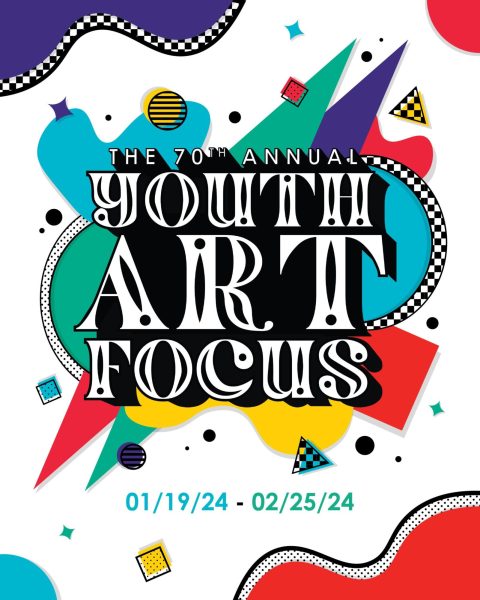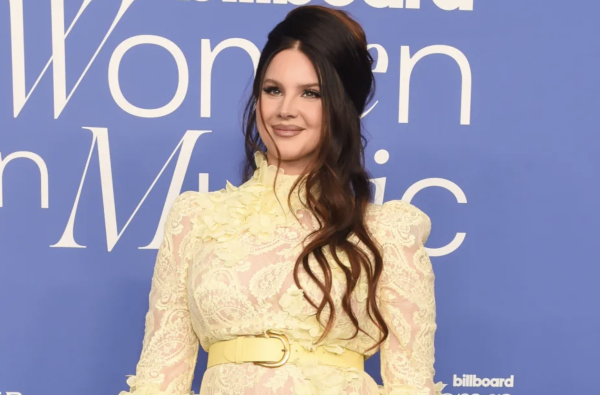Mary J. Blige’s ‘My Life’ turns 27
November 26, 2021
“All I really want is to be happy and to find a love that’s mine.”
– “Be Happy,” Track 17
By 1994, a 22-year-old Mary J. Blige had cemented her role as everyone’s homegirl from around the way who went through and felt the same things as us. After releasing her triple-platinum debut album, “What’s the 411?” in 1992, Blige brought forth a new sound, look and level of emotional depth that would ultimately make the Bronx native the spokesperson for those who were living under storm clouds on a daily basis.
On “My Life,” Blige bears the raw, emotional side of herself that wasn’t explicitly shown on previous tracks such as “Real Love” and “You Remind Me.” Much of the album’s content is rooted in the numerous trials and tribulations Blige had faced before and during the creation of the album.
“I have 13 albums,” Blige said during her Amazon documentary released earlier this year, “but my second, ‘My Life,’ is my most important.”
By the time production began for “My Life” in the winter of 1993, Blige was in a relationship with Cedric “K-Ci” Hailey of the legendary R&B quartet Jodeci. The relationship, which lasted for six years, consisted of several stints of physical and mental abuse, and would serve as a major source of inspiration for the album.
The album, which was almost exclusively produced by a young Chucky Thompson and P. Diddy, heavily sampled hits recorded by various industry aficionados, including Barry White (“You Bring Me Joy), Slick Rick and Doug E. Fresh (“No One Else”) and the Mary Jane Girls (“Mary Jane”).
In an interview with Rolling Stone, Thompson spoke on the need for Blige to create a follow-up record that would rebut critics who predicted that Blige would not produce another album of her debut’s magnitude.
“I didn’t like people throwing stones at something they didn’t understand,” Thompson said. “So I was like, on this record, people are gonna know you’re a singer. You’re the real deal.”
And the “real deal” is exactly what Blige would become. Fusing 70s and 80s sounds with 90s dilemmas and demises, Blige’s sound would evolve into an almost signature melancholy, a sound that continues to move fans, young and old.
After being released in November of 1994, “My Life” peaked at number seven on the Billboard 200 and number one on the Top R&B/Hip-Hop Albums chart. With over 481,000 copies sold during its first week of release, the album spent eight weeks atop the Top R&B/Hip-Hop Albums chart and would be certified triple platinum.
The album would spawn five singles: “Mary Jane (All Night Long),” “You Bring Me Joy,” “I’m Going Down,” “I Love You” and “Be Happy.”
Here are a few non-single tracks that will acquaint even the most far-fetched listener with the heart-wrenching, soul-bearing sound that is “My Life.”
My Life
“Life can be only what you make it. When you’re feeling down, you should never fake it.”
Despite not being released as a single, the album’s titular track, which samples Roy Ayers’s 1976 hit “Everybody Loves the Sunshine,” permits us to almost see and touch the bones of Blige’s demise, which included bouts with alcoholism and a growing drug addiction. The song is one of the album’s most memorable and is often considered to be one of Blige’s signature hits.
The song would also allow a clinically depressed Blige to express sentiments that were often avoided in popular R&B tracks of the time, and forced listeners to accept the fact that Blige, like most of us, wasn’t living in the “sunshine.”
You Gotta Believe
“I told you once before that I love you and I need you but let me tell you once again. You are my closest friend.”
On track 8, “You Gotta Believe,” Blige pleads to a lover who has or is on the verge of departing her life forever. Throughout the album’s deluxe edition, Blige, in several commentaries, declares that many of the tracks, including this one, were about Blige’s begging to be “seen” and loved.
The lengths some of us go to to prove ourselves to other human beings can sometimes be unearthly. However, Blige manages to avoid the ridicule that is often thrown at those who are in her situation. Her openness reminds us that there’s no shame in loving hard, but there must be a limit, which Blige attempts to make known throughout the rest of the album.
The song is one of 14 tracks written by Blige and features background vocals from Faith Evan and then-boyfriend K-Ci.
I’m The Only Woman
“If you wanna be happy, I’m the only one you need. All you have to do is trust me.”
Co-written by Blige and Joel “Jo-Jo” Hailey, “I’m The Only Woman” samples “Give Me Your Love,” which was originally recorded by Curtis Mayfield for the soundtrack of the 1972 blaxploitation film “Superfly.”
Here, Blige reminds her lover of what could happen if he would respect her status as the leading lady in his life and forgive her for whatever qualms she may have caused. The track continues Blige’s overall theme of relationships and highlights the all-too-common breakdowns and distrust that occurs within them.
My Life (Interlude)
“Even in my darkness, I knew there was a God and I was so grateful for him…”
On this haunting, yet redemptive interlude, Blige showcases her uncanny ability to maintain her faith in God despite the numerous setbacks she had experienced on her journey to fulfillment. “My Life (Interlude)” deviates from the self-effacing sentiments expressed in tracks like “No One Else” and “I Never Wanna Live Without You” and provides a window into Blige’s personal relationship with the Source.
This interlude serves as a pick-me-up for those who find themselves unable to see the light at the end of the tunnel. It seems as if Blige is at the finish line, but in reality she’s just beginning the process of healing the scars that continue to lead her to the mic.
“My Life,” in its essence, is Mary J. Blige. What Blige did and continues to do is make it okay for us to be human, to be sad, to be uncomfortable, to vulnerable. Mary Jane Blige, the Bronx native, the nine-time Grammy winner, is one of the purest expressions of the all-encompassing God and a testament to the possibilities that arise when we relinquish the hurts that were never meant to permanently keep us down.











